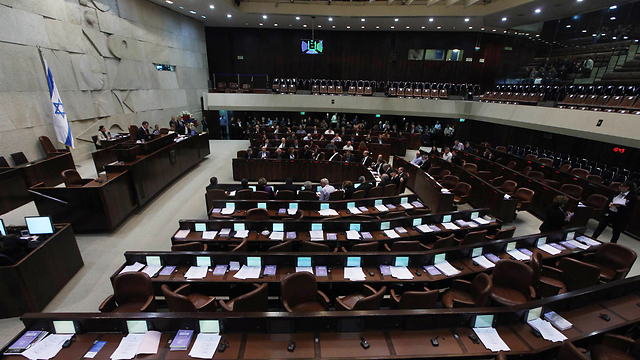The Passion of Israel's Politics
"Recently, hardly a day passes without us running into diktats or threats of resignation, or ultimatums and such, as ministers attack the government and its prime minister."
"I hope that we will be able to return to proper conduct. This is what the public expects of us because only thus is it possible to run the country, and if not, we will draw conclusions."
Israeli Prime Minister Benjamin Netanyahu
"The major issues are stuck and the prime minister isn't doing anything about the state budget, Israel's international relations, personal security and housing. Instead we are dealing with the pettiness of politics."
The prime minister needs to decide that he doesn't want elections. This crisis can be solved in a conversation between us."
Yesh Atid party leader Yair Lapid, Finance Minister
"He has gone into what people who know much more than me about psychology call a manic depressive state. There are ministers who are certain that he is no longer functional."
Nahum Barnes, columnist, Yedioth Ahronoth newspaper

The Israeli Knesset will begin its winter session today. Photo: Gil Yohanan
There is much talk about a crisis in the coalition that makes up the government of Israel in the Knesset; although Mr. Netanyahu's Likud party received the most votes in the last election, that wasn't enough to form a government, and nor is it ever for the most part in Israeli elections where factionalism and competing politics ensure that minority parties agreeing to help govern the country end up having power disproportionate to their representation.
Few countries face the existential threat that Israel does, from the very day of its birth to the present time, generations on. Constant threats, attacks and the intolerable reality of battling an enemy nearby as well as enemies further distant, and those within the very country itself inevitably create an element of paranoia. But it is not paranoia per se that drives the country's psyche, but the reality of vulnerability expressed by real-time violence.
A vulnerability that is graphically witnessed daily, with attacks across the border from Gaza as rockets are sent careening toward Israeli settlements, and in violent attacks that take place in West Bank settlement areas, as well as Tel Aviv and Jerusalem, anywhere that Jews live and intermingle with Palestinians who are also citizens of Israel, most of whom would never dream of visiting violence on anyone, but many of whom don't mind someone else doing it for them.
Some believe that Israel is now headed "98%" into an election. The thing is, even if that happens, it is highly likely that the prime minister's party will once again receive a minority-majority vote. And then the time-consuming, laborious and wretchedly mind-numbing work of establishing a working government will once again commence. An exercise of Israeli politics which, once engaged in and completed, will change nothing.
The latest issues infuriating Mr. Netanyahu's many critics in government are two in number, the bill declaring Israel "the nation state of the Jewish people", and the bill to isolate those conspiring against the state as citizens, revoking their rights and privileges and citizenship, and in certain instances imprisoning, then exiling them as punishment. Given all the circumstances and influences it's hard to see how those bills aren't required to establish once and for all both the Jewish State's priorities and its security.
The nation state bill was approved by the cabinet in an atmosphere of increasing tension between Jews and Arabs. Acts of racist violence have broken out on both sides, though those emanating from right-wing Jews haven't quite the violence cachet of those coming from Arabs whose new love affair with vehicular homicide has made theirs quite deadly. Israel clings to its democratic roots, fearing that declaring itself fully Jewish in intent and content might imperil its democracy.
Public polls indicate that although Mr. Netanyahu's popularity has fallen from its height in early August, a substantial number of respondents still support him sufficiently to give him the voter-boost to return to power. Polls demonstrate shrinking support for Mr. Lapid, Ms. Livni and the opposition Labor Party. It is not an election that will make a positive difference in the state of the state, but a tamping down of the heated rhetoric and interior temperature toward temperance.

<< Home